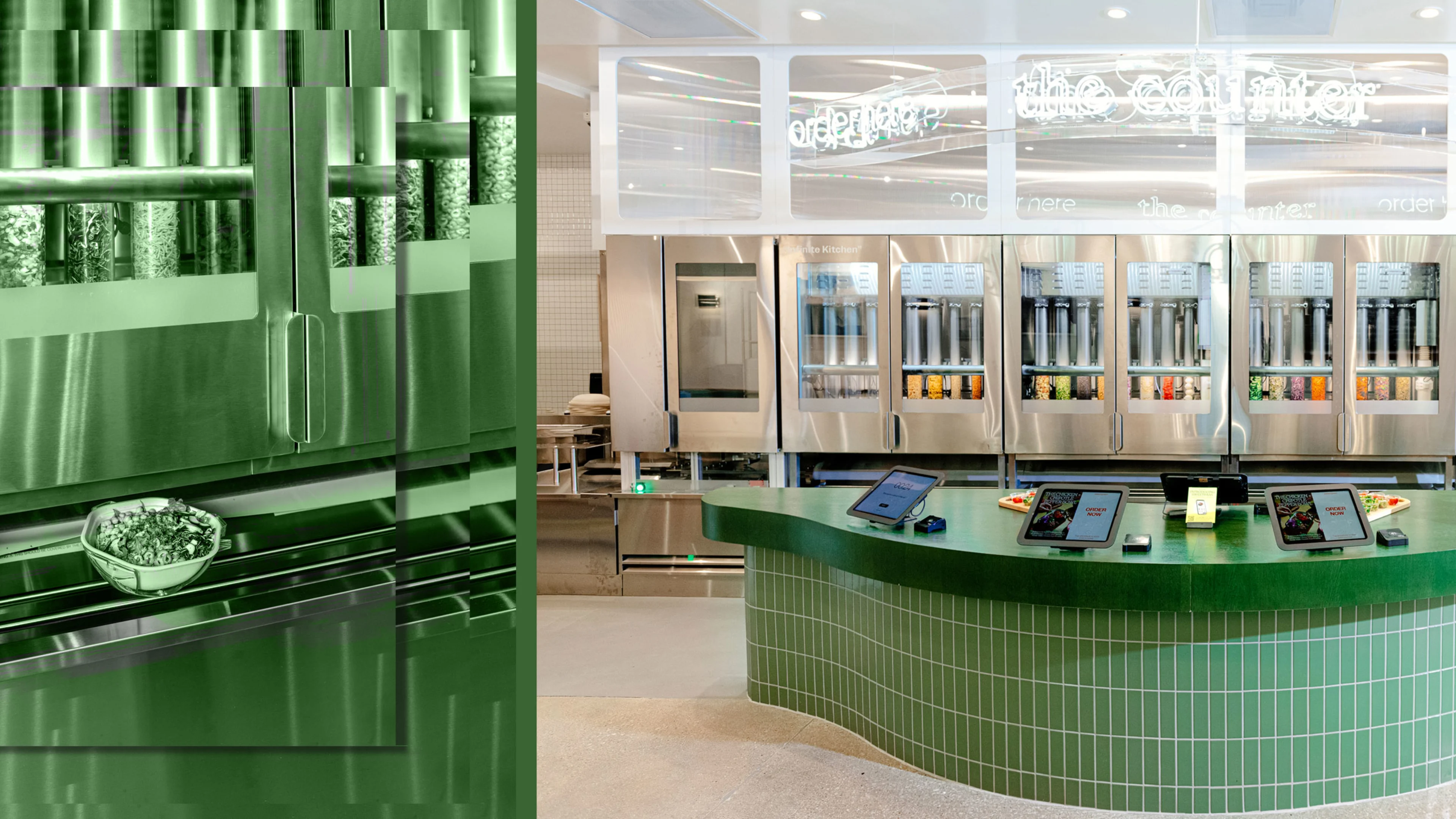On November 6, Sweetgreen announced that it was selling Spyce, its division that developed and made its Infinite Kitchen technology to automate the assembly of its bowls and salads. The acquirer is Wonder, the “restaurant and mealtime superapp,” as Fast Company dubbed it earlier this year.
With that, it’s time to eulogize Sweetgreen’s star-crossed life as a tech company. No more dreams of AI, blockchain, or robots.
Sweetgreen is to receive $100 million in cash and $86.4 million in Wonder stock—a positive return, given that it acquired Spyce in 2021 for a total cost of $70 million. Wonder, which is privately held, was valued north of $7 billion in May after it raised another $600 million. Sweetgreen, which went public four years ago, has a market capitalization of under $750 million.
After Sweetgreen’s disastrous Q2 2025 earnings report, I wrote that Infinite Kitchen represented “the first effort by the company to use technology to solve its biggest problem—operations—rather than mere magic dust sprinkles to make the company look like something it’s not.”

Now the company’s latest earnings are worse, and it doesn’t own what had felt like a competitive advantage.
“A lot of other companies are trying to figure out how to add automation to their experience and are not willing to start over,” Sweetgreen CEO Jonathan Neman told The Wall Street Journal in 2023 while showing off his first restaurant equipped with an Infinite Kitchen. “I’m willing to blow the whole thing up.”
The question, though, is when did Neman light the fuse that blew up Sweetgreen? Was it two years ago? Was it just November 6? Or was the bomb planted in the company’s earliest days, and it’s finally detonated? Sweetgreen’s stock is down another 12.5% as of Friday afternoon. (In response to queries, Sweetgreen directed me to Neman’s public statements.)



You must be logged in to post a comment.